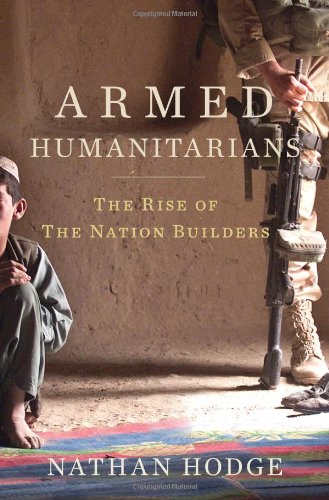

Most ebook files are in PDF format, so you can easily read them using various software such as Foxit Reader or directly on the Google Chrome browser.
Some ebook files are released by publishers in other formats such as .awz, .mobi, .epub, .fb2, etc. You may need to install specific software to read these formats on mobile/PC, such as Calibre.
Please read the tutorial at this link: https://ebookbell.com/faq
We offer FREE conversion to the popular formats you request; however, this may take some time. Therefore, right after payment, please email us, and we will try to provide the service as quickly as possible.
For some exceptional file formats or broken links (if any), please refrain from opening any disputes. Instead, email us first, and we will try to assist within a maximum of 6 hours.
EbookBell Team

4.3
28 reviewsCombining recent history and firsthand reporting, Armed Humanitarians traces how the concepts of nation-building came into vogue, and how, evangelized through think tanks, government seminars, and the press, this new doctrine took root inside the Pentagon and the State Department. Following this extraordinary experiment in armed social work as it plays out from Afghanistan and Iraq to Africa and Haiti, Nathan Hodge exposes the difficulties of translating these ambitious new theories into action.
Ultimately seeing this new era in foreign relations as a noble but flawed experiment, he shows how armed humanitarianism strains our resources, deepens our reliance on outsourcing and private contractors, and leads to perceptions of a new imperialism, arguably a major factor in any number of new conflicts around the world. As we attempt to build nations, we may in fact be weakening our own.
Nathan Hodge is a Washington, D.C.-based writer who specializes in defense and national security. He has reported from Iran, Iraq, Afghanistan, Russia, and a number of other countries in the Middle East and former Soviet Union. He is the author, with Sharon Weinberger, of A Nuclear Family Vacation, and his work has appeared in Slate, the Financial Times, Foreign Policy, and many other newspapers and magazines.